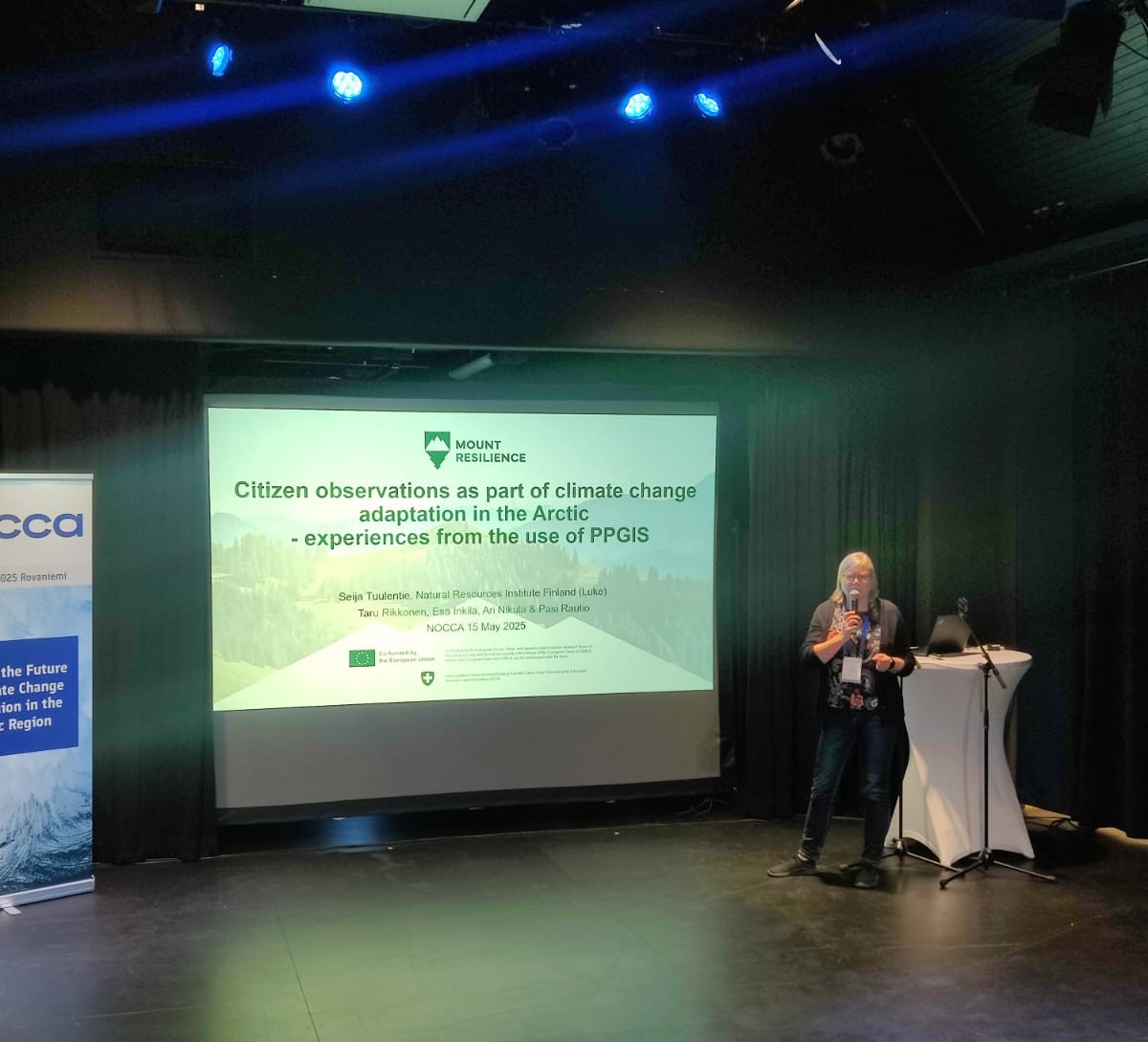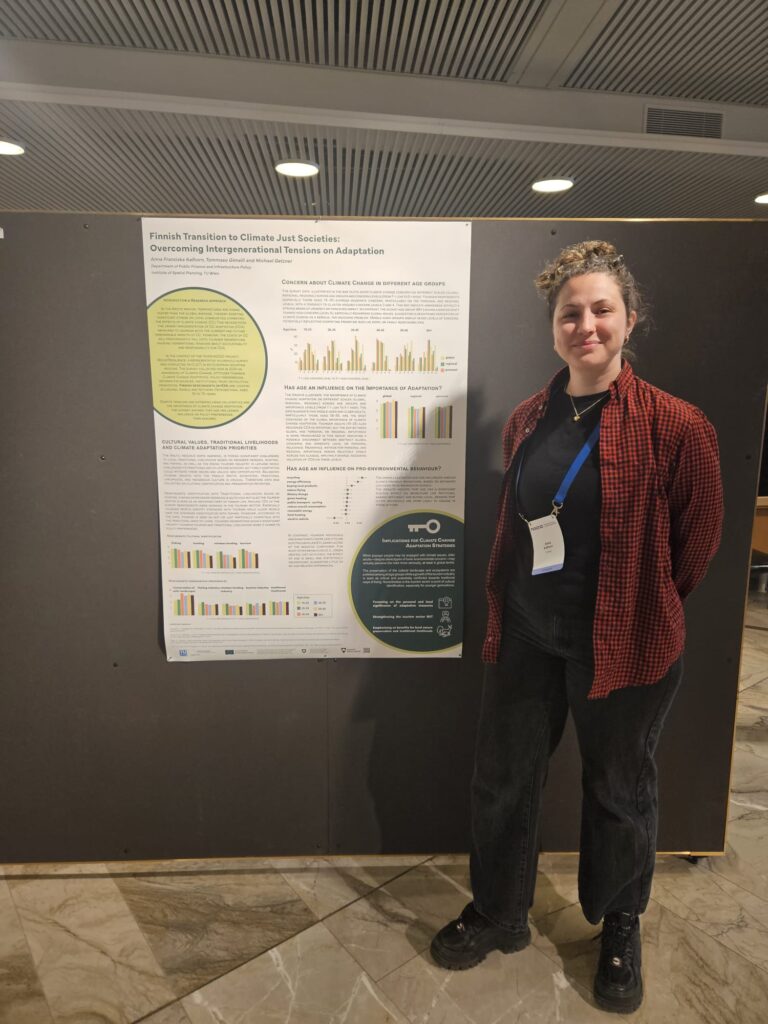In May 2025, at the Nordic Climate Change Adaptation Conference (NOCCA) in Rovaniemi Finland, the MountResilience project showcased the crucial role of local residents in climate change adaptation through both an oral presentation and a poster. Seija Tuulentie (Natural Resources Institute Finland, Luke) focused on the use of participatory geographic information systems (PPGIS) to collect citizen observations, while Anna Franziska Kalhorn (TU Wien) presented a poster exploring how residents in Finnish Lapland perceive adaptation measures.
Both presentations emphasised the importance of local knowledge, lived experience, and active participation—especially in Arctic regions. The MountResilience project combines participatory tools and traditional survey methods to better understand the impacts of climate change and to develop regionally sustainable adaptation strategies that reflect generational perspectives.
In her presentation, Seija Tuulentie introduced how the PPGIS method is used to collect citizen observations on the impacts of climate change in the Arctic.
In the MountResilience project, local knowledge and citizen-generated data are central. One of the key tools is the participatory geographic information system (PPGIS), which allows community members to mark observations directly on maps. This provides up-to-date and detailed insights into local conditions, such as drying wetlands, deteriorating grazing lands for reindeer, and shifting ice conditions.
The PPGIS results from the northernmost municipalities in Finnish Lapland are promising, particularly given the enthusiasm with which the actual land users, such as reindeer herders, shared their knowledge. Nevertheless, developing a participatory early warning system is a long way off.

The spatial survey was conducted during winter 2024-2025 in the municipalities of Enontekiö and Utsjoki in northern Finland. The survey included traditional survey questions, as well as map-based questions asking about the local conditions and observed changes in the environment. The method proved to be especially effective among reindeer herders, whose detailed area markings reflect their deep knowledge of the environment. The data gathered through PPGIS can—and should—be used to support municipal decision-making processes.
While PPGIS provides valuable data, its use comes with challenges, such as ensuring representative sampling, facilitating inclusive participation, and addressing ongoing technological development. Additionally, applying the collected data in policy-making requires effort already during the data collection phase. Nevertheless, the method has strong potential as an early warning system for climate-related risks, a planning tool, and a means to enhance civic engagement. The PPGIS also includes traditional surveys, with particular attention to involving residents in remote areas through remote participation tools.
The MountResilience poster further highlighted how different age groups in Finland perceive climate change and adaptation, with a special focus on Arctic regions.
In autumn 2024, the project conducted a representative household survey to study adaptation attitudes in Lapland, Kainuu, and Northern Ostrobothnia. The research presented, carried out by Anna Franziska Kalhorn, Tommaso Gimelli, and Michael Getzner from TU Wien, focused on generational differences and was presented as preliminary results at Nocca. The survey responses will be fully analysed during autumn 2025.

The findings show that younger respondents tend to express higher levels of concern—particularly at regional and personal levels—while older individuals focus more on global perspectives. The study also examined how traditional livelihoods such as reindeer herding, hunting, and fishing are valued across age groups. Younger participants consider them key to cultural identity and worth preserving, while older people are more actively engaged in climate-friendly behaviours like recycling and green energy appliances.
While younger people may be engaged with climate issues, older adults—despite stereotypes of lower environmental concern—may actually perceive the risks more seriously than presumed, at least in global terms. These preliminary findings imply that generational tensions over climate issues might derive from other discrepancies such as income or wealth.
Still, effective climate adaptation strategies must consider these generational differences. It is essential to bridge the global concerns of older generations with the motivation of the youth. Adaptation should therefore emphasize both personal and local relevance, support sustainable tourism, and safeguard cultural heritage and traditional livelihoods.
Written by: Lotta Eriksson, Seija Tuulentie, Taru Rikkonen and Anna Kahlhorn
